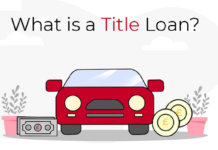Escrow refers to a financial instrument in which a third party holds an asset or escrow money on behalf of two other parties in the process of completing a transaction.
Escrow accounts may incorporate escrow fees which agents who hold the funds or assets manage until receiving instructions or until the fulfillment of pre-established contractual obligations. Money, funds, securities, and other assets can be held in escrow. Often, it is recommended as a replacement for a cashier’s or certified check.
While escrow isn’t required, it’s typically recommended as it protects both the seller and buyer. Discover how escrow works and how you can benefit from using an escrow account when selling your home.
How Escrow Works?
Escrow is used when two parties are in the process of completing a transaction, but it’s uncertain whether one or both of the parties can meet their obligations. The purpose of an escrow company, like Lightspeed Escrow, is to make all transactions regarding real estate, intellectual property, banking, internet transactions, mergers, acquisitions, etc, efficient.
Think about the company that is selling products. The company needs assurance it will receive the payment once the product reaches its destination. On the other hand, the customer is ready to pay for the product only if it arrives in good condition.
The customer can place the funds in escrow with an agent with instructions to allocate them to the seller once the product arrives in good condition. With escrow, both parties are safe, and the transaction can be completed.
What Is an Escrow Agreement?
An escrow agreement refers to a contract outlining the terms and conditions between the parties involved and their responsibilities. Usually, it involves an independent third party – an escrow agent. Escrow agents hold assets of value until the contract’s conditions are fulfilled.
How Do Escrow Agreements Work?
In an escrow agreement, one party deposits funds or assets with the escrow agent until the contract is fulfilled. Once the contractual conditions are met, the escrow agent will transfer the funds or assets to the receiver.
Escrow agreements are typically used in financial transactions, particularly those involving considerable dollar amounts such as online sales and real estate.
Escrow agreements must define the conditions between all parties involved. That way, it’s ensured all the obligations are met, and the transaction is carried out reliably and safely.
Typically, an escrow agreement includes information like:
- The identity of the escrow agent
- Definitions for any expressions relevant to the escrow agreement
- The escrow funds and conditions for their release
- The permitted use of funds by the escrow agent
- The liabilities and duties of the escrow agent
- The escrow agents’ fees
- The jurisdiction and venue in the circumstance of legal action
Most escrow agreements are arranged when one party wants to ensure the other party meets particular conditions before moving forward with the transaction. For example, a home seller may arrange an escrow agreement to make sure a homebuyer can secure financing before the sale completes. If the buyer can’t secure financing, the escrow agreement and the deal can be canceled.
Read Also: Is Cracker Barrel a Good Investment? Learn Now
For some transactions, such as real estate, the escrow agent may open an escrow account into which funds are deposited. Traditionally, cash has been the asset people hand over to an escrow agent. Now, any valuable asset can be placed into escrow, including bonds, stocks, mortgages, deeds, patents, or checks.
Escrow agreements provide security by entrusting an asset to an escrow agent for keeping until each party fulfills contractual duties.
Escrow and Real Estate
Placing the funds in escrow allows the buyer to do due diligence on a potential purchase. Escrow also assures the seller that the buyer can complete the purchase.
For instance, escrow can be used for the sale of a house. The seller and buyer may agree to use escrow if there are conditions tied to the sale, such as the passing of an inspection. In this case, the buyer deposits the payment amount in an escrow account held by a third party.
The seller can begin with inspections, assured that the funds are there, and the buyer can make a payment. The funds in escrow are then transferred to the seller once the conditions are met.
An escrow account can also be set up at the mortgage closing. Then, the escrow account holds future homeowners insurance and property tax payments. A part of the monthly mortgage payment is deposited into an escrow account to cover these expenses.
Mortgagees that arrange an escrow account will have higher payments than those who don’t. However, they won’t have to worry about paying property tax bills or yearly premiums because they’re already paying it monthly into their escrow account.
What Is Your Role as a House Seller?
Your tasks as a home seller will include making your home available for inspections and appraisals, preparing different forms and statements, and meeting any other contingencies you agreed to in your contract within the promised time frame.
Also, you’ll have to be available and responsive if issues arise. For example, if the inspection finds that your home doesn’t have enough smoke detectors, you’ll have to place additional ones.
To ensure you stay on track, stay in close touch with your escrow and real estate agent.
Escrow Fees
Typically, an escrow agent charges a fee of approximately 1% of the home sales price paid at the home sale closing. The seller and buyer can negotiate who will pay the fee or agree to split it.
Benefits and Drawbacks of Escrow
Escrow provides security for high-value transactions. However, this service typically comes with a fee. Escrow for mortgages can protect the lender and borrower from potentially underpaid homeowners insurance or property taxes.
However, these numbers are typically estimated. So, you can end up overpaying or underpaying into your escrow account. That can lead to an adjustment when the time comes to make annual payments. This requires a higher mortgage payment than if it only included principal and interest.
So, Do You Need an Escrow Account when Selling Your House?
Although you don’t need an escrow account to sell your home, escrow is generally recommended because it protects both you and the buyer. That’s why many people use it.
Also, escrow as a part of mortgage payments is typically good for the lender and helps the buyer by making sure homeowners insurance and property taxes are paid on time.



































